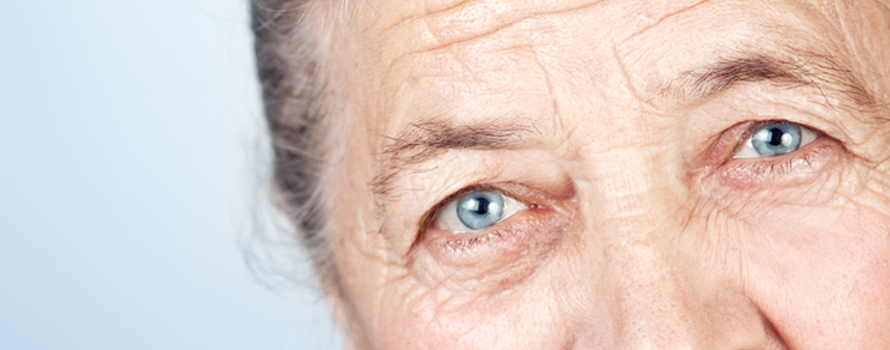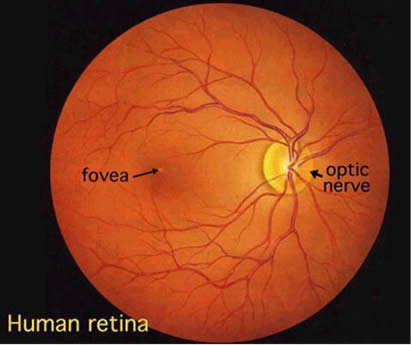Age Related Macular Degeneration
What is age-related macular degeneration?
AMD is a condition in which the central part of retina , called Macula, gets damaged. This affects your central vision which is needed for reading, writing, driving, recognising people's faces and doing other fine tasks.

Age-related macular degeneration (AMD or ARMD) is the most common cause of vision loss in those aged over 50. It causes a gradual loss of central vision. There are two main types of AMD - 'wet' and 'dry'. 'Wet' AMD is most severe but more treatable. Visual loss caused by AMD cannot normally be reversed, hence early Diagnosis and Treatment is very important.
Dry ARMD
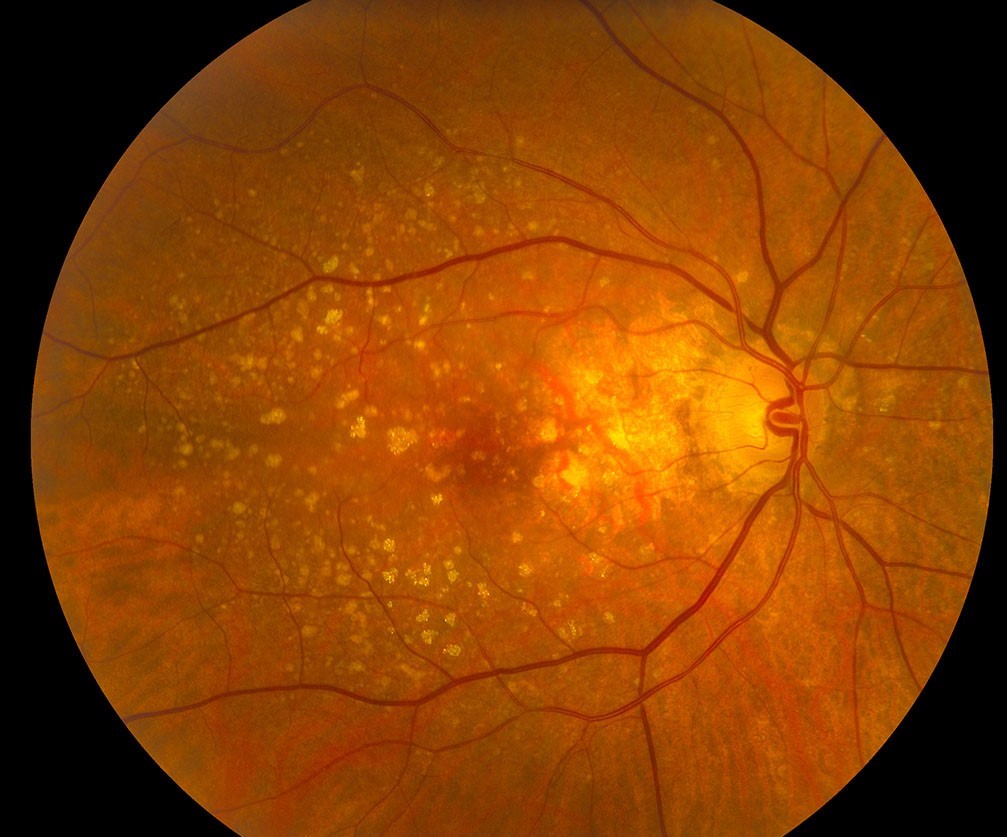
This is the most common form in which the Cells of the Central part of Retina start to thin out and degenerate. Typically, dry AMD is a very gradual process as the number of cells affected increases.
Wet ARMD
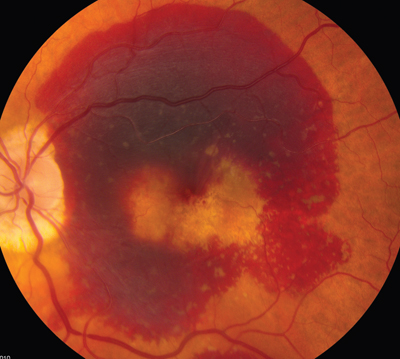
Wet AMD may also be called neovascular or exudative AMD. It is likely to cause severe visual loss over quite a short time .New blood vessels grow up into the Retina and often leak blood and fluids in the Retinal layers resulting is swelling and distortion of the Retina. This impaires the functioning of the retina resulting in loss of vision.
What are the risk factors for ARMD
Advancing Age
Smoking and chewing tobacco.
High blood pressure
A family history of AMD.
High cholesterol levels and obesity
What are the symptoms of age-related macular degeneration ?
The main early symptom is Distorted vision , in which a grid of straight lines appears wavy and parts of the grid may appear blank. A 'blind spot' then develops in the middle of your visual field. This tends to become larger over time as more and more rods and cones degenerate in the macula.Words in a book or newspaper may become blurred.Colours appear less bright.You have difficulty recognising faces.
How is age-related macular degeneration diagnosed?
Your Eye doctor may ask you to look at a special chart called Amslers with horizontal and vertical lines to check your visual fields.
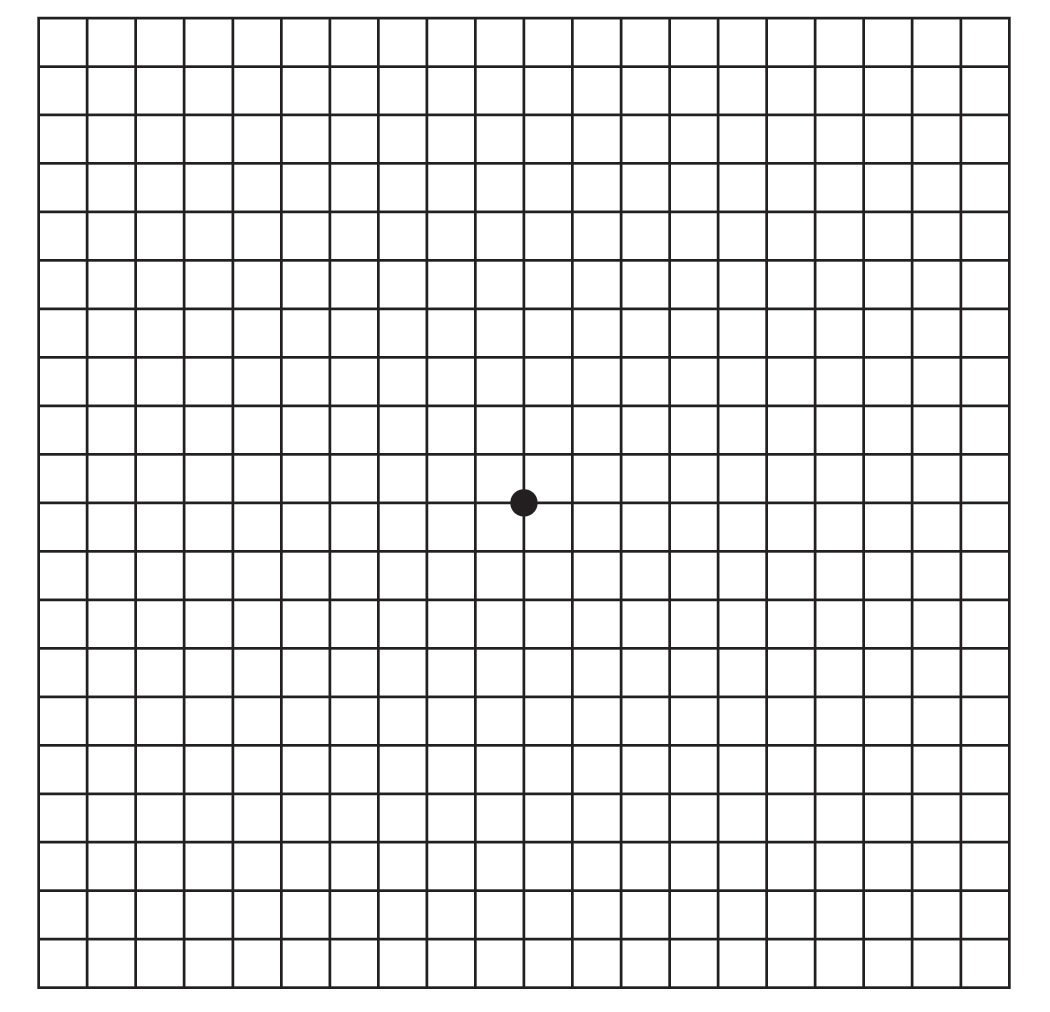
He will examine the back of your eye with a slit lamp microscope. This is a magnifying piece of equipment where the ophthalmologist examines your retina. Digital photographs can be taken of the retina. Another test called ocular coherence tomography (OCT Test) is a non-invasive test that uses special light rays to scan the retina. It can give very detailed '3D' information about the macula, and can show if the macula is thickened or abnormal If wet AMD is diagnosed or suspected, then a further test called fluorescein angiography may be done. For this test a dye is injected into a vein in your hand and pictures of the retina are taken with a special camera the ophthalmologist can see where any dye leaks into the macula from the abnormal leaky blood vessels. This test can give an indication of the extent and severity of the condition.
Is there any treatment for age-related macular degeneration ?
In recent years a group of medicines called anti-VEGFs has been developed which help to prevent the formation of the abnormal blood vessels that occur in Wet ARMD. The anti-VEGF medicines are injected using a fine needle directly into the central cavity of the eye. These injections are needed to be injected once in every month till the bleeding on the retina subsides. Serial OCT and FFA tests are important in determining the response and course of the treatment . Other treatment modalities include special laser application to the retina and surgery in exceptional cases.Patients can also benefit from vitamin and mineral supplements. These supplements can slow down the progression of ARMD.
